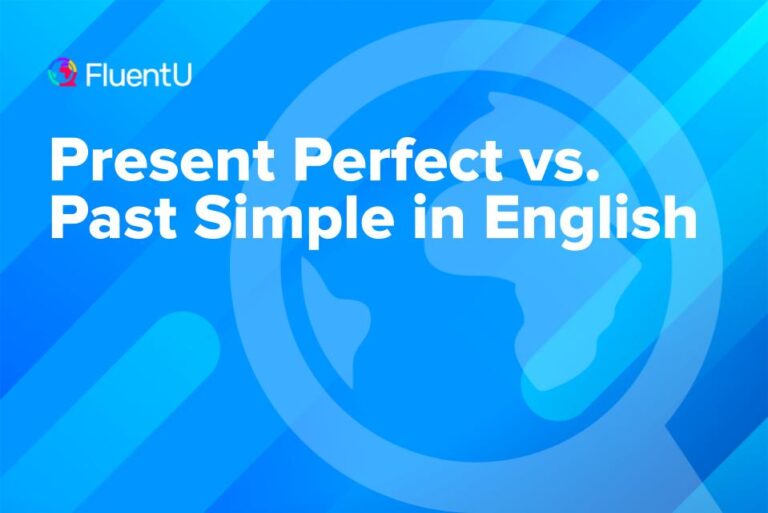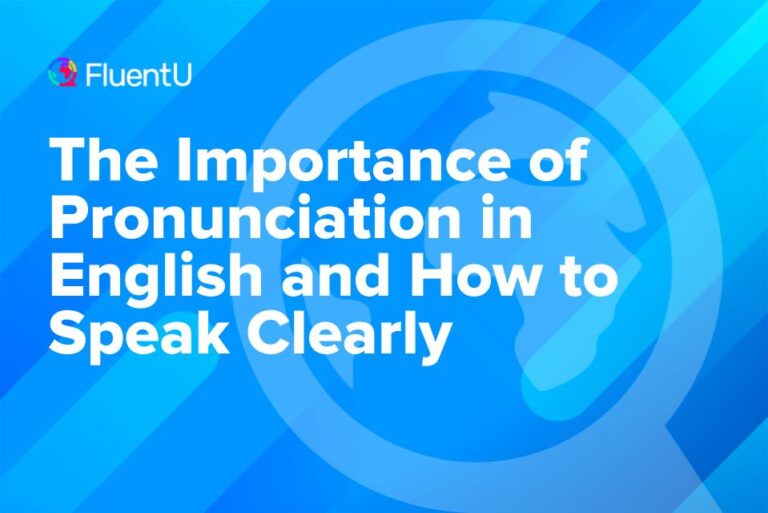Contents
- 1. Learn English By Stories
- 2. News in Levels
- 3. Breaking News English
- 4. A1 reading by LearnEnglish (British Council)
- 5. Really Learn English
- 6. Lingua
- 7. USA Learns
- 8. “The Curious Incident of the Dog in the Night-Time” by Mark Haddon
- 9. “The Old Man and The Sea” by Ernest Hemingway
- 10. “Little House on the Prairie” Series by Laura Ingalls Wilder
- A Quick Introduction to Reading Techniques
- And One More Thing...
English Paragraphs for Reading: 10 Easy Resources
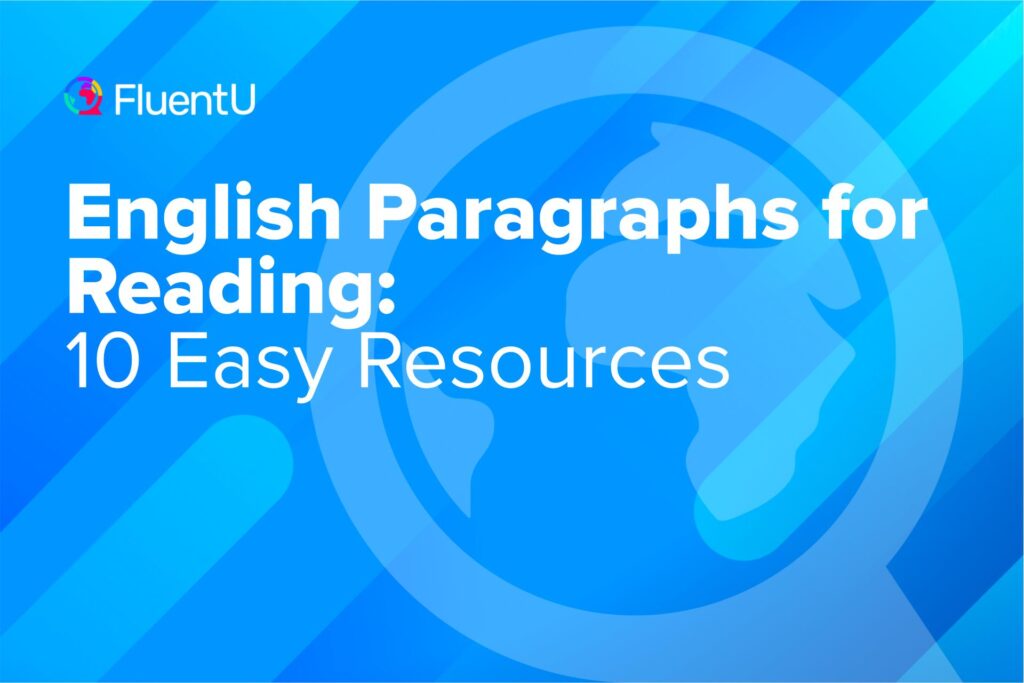
We all know it’s smart to use little pockets of time to build a new skill, but actually doing it is another story. My uncle had a great solution to this: Keep a book on hand and just read whenever you can.
Whether it’s just five minutes here and there or a dedicated time each day, reading is a great way to practice your English. So here are some practical resources to help you make the most of those spare moments—your English reading skills will thank you.
Download: This blog post is available as a convenient and portable PDF that you can take anywhere. Click here to get a copy. (Download)
1. Learn English By Stories
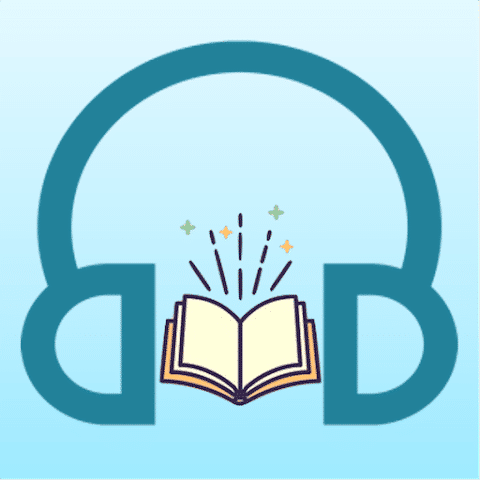
Price: Free (with in-app purchases)
This app offers perfect bite-sized (short) reading.
There’s tons of helpful content here. You can choose from seven different levels with hundreds of paragraphs in each. Every paragraph comes with audio to help with your pronunciation. You can choose to hide the script so you can listen before or after reading it.
2. News in Levels

Price: Free
News in Levels takes news stories and writes them at three different language levels. In each level, the difficult words are defined in simpler terms so you can learn what they mean.
Each lesson has a voice recording reading the story, which allows you to learn proper pronunciation. The story is always read at a speed that lets you read along if you choose.
3. Breaking News English

Price: Free
From apps, let’s move on to websites! Similar to News in Levels, Breaking News English also groups their lessons into seven levels. The “Easier” lessons are from Levels 0 to 3, while the “Harder” ones are from Levels 4 to 6.
It’s not the prettiest website out there, but it more than makes up for that with the sheer number of lessons (over 3,300 free articles as I’m writing this) and how easy it is to use the site. You can click through the levels on the right side of your screen, or scroll through the home page and click on any article tagged with the level you’re at.
For example, the article “Mystery of radioactivity of Germany’s wild boars” is suitable for Levels 4 to 6. If Level 6 is a bit too tough for you at the moment, you can scroll down the article and click on the version that’s written for Levels 4 and/or 5 readers.
After reading each article, you can scroll further down and have fun with exercises like vocabulary matching, true or false, fill-in-the-blanks, reading comprehension questions, multiple-choice quizzes and more.
4. A1 reading by LearnEnglish (British Council)

Price: Free
When it comes to English reading materials for learners, there are few better resources than LearnEnglish from the British Council.
If you’re a beginner, you can start with the A1 reading section. You can learn to decipher (understand) common English materials ranging from simple messages to friends to job adverts (short for “advertisements” or materials designed to get you to do a specific action).
Each topic contains instructions on how you can best learn from the material, the text itself and a couple of interactive tasks you can complete near the end. You can also download and print out each page if you prefer to do the exercises using pen and paper.
Once you’re done, you can advance (move on or move forward) to the A2, B1, B2 and C1 levels in that order.
5. Really Learn English
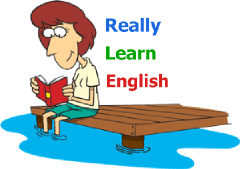
Price: Free
Really Learn English is packed with articles on topics ranging from countries around the world to human rights. Each article comes with a video followed by a short text you can read and one exercise related to the topic.
Aside from exercises for reading practice, you can also check out their sections on short stories and comprehension exercises to really hone (improve) your English skills. (Hey, they’re called “Really Learn English” for a reason!)
6. Lingua

Price: Free
Currently, Lingua has 42 free texts available to learners across all levels and 178 premium texts (meaning you have to pay to use these additional materials).
Each text comes with an audio reading and multiple-choice questions that will instantly give you a score once you’re done with the exercise. You can also download a PDF file of each text and the questions—the difference is that the PDF version doesn’t have audio and has the answers to the questions printed at the bottom of the page.
7. USA Learns
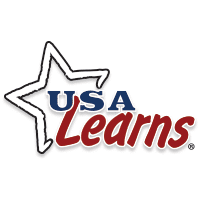
Price: Free
As you can guess from the website’s name, USA Learns is a treasure trove for learners who want to pick up American English specifically.
Unlike many of the resources listed so far, this site includes images along with each English paragraph to help you understand the text further. You can also click “Listen” to hear the words and phrases said out loud. Then, click “Next” to answer the reading comprehension questions for the text.
You have to sign up to use the free resources, but I think that extra step is worth it!
8. “The Curious Incident of the Dog in the Night-Time” by Mark Haddon
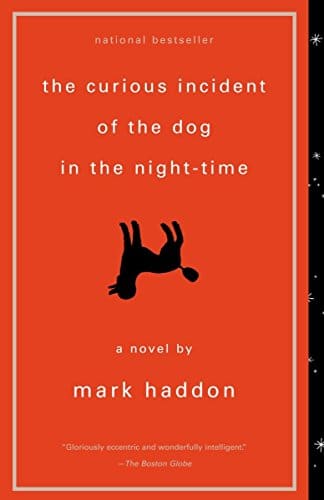
This is a brilliant novel for English learners. It’s thrilling (exciting), funny and a moderately easy read.
Told from the perspective (view) of an autistic boy, this book follows his investigation of a murder of a neighbor’s dog. He uses images to explain certain parts of the case and he mostly uses very basic sentence structure. Most English students will be able to follow the story without much assistance.
It’s told in chronological order (the order in which things or events actually happened) and keeps the reader in suspense about what happened.
I’ve used this book with a book club of intermediate English speakers and they really enjoyed it. It was challenging enough for them to learn something new, but easy enough to allow them to get through the book without too much time spent translating.
9. “The Old Man and The Sea” by Ernest Hemingway
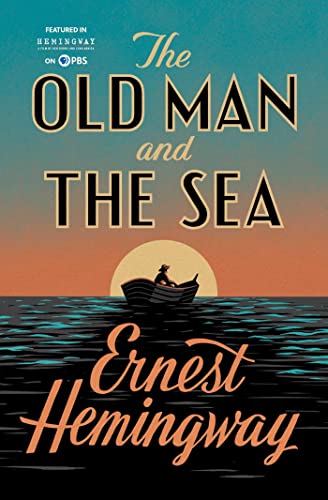
If the idea of 20th century novels makes you think of books written in hard-to-understand language, this work by Ernest Hemingway might just change your mind.
The book is written in Hemingway’s trademark (distinctive) beige prose, meaning prose that uses simple language and is straight to the point. It’s about an old Cuban fisherman who keeps trying and failing to catch a fish called a marlin.
I can’t say any more than that, because I’ll end up spoiling (giving away or revealing) the parts of the plot that you’ll want to enjoy for yourself. After reading this, you’ll understand why this book is considered one of Hemingway’s best works and won the 1953 Pulitzer Prize for fiction.
10. “Little House on the Prairie” Series by Laura Ingalls Wilder
![Little House on the Prairie- Box Set Books 1 Through 8 (The Little House Books) [Paperback] Laura Ingalls Wilder and Garth Williams Little House on the Prairie- Box Set Books 1 Through 8 (The Little House Books) [Paperback] Laura Ingalls Wilder and Garth Williams](https://www.fluentu.com/blog/wp-content/uploads/2024/08/51DtQJCM11L._SL500_.jpg)
This series is aimed at children, but adults can also enjoy the more complex storylines in these books.
True to their name, the books revolve around a family that lives on a prairie (a large, flat area covered in grasses that is common in the United States). The events are based on the author’s real-world experiences, making the stories and the world described in these books feel like they could actually happen.
Through “Little House on the Prairie,” you can learn more about American culture in the late 19th century. If your English teacher allows it (and a good teacher should allow it), you can use these to start discussions on the similarities and differences in U.S. culture then and now.
By the way, if you’re looking for more books with simple English paragraphs, check out this list of easy English books for beginners. You can also pick up any book that’s labeled “middle grade” or “young adult”—they often use language that’s simple enough for learners to understand, yet have characters and plots that are interesting enough for adults. (In case you’re wondering what “middle grade” and “young adult” mean, here’s a short article about them.)
A Quick Introduction to Reading Techniques
The problem with reading is that we often look at it as a big project when it doesn’t need to be. You just need to start with bite-sized reading: Take little bites of reading in your second language, take your time, start small and try to make reading a habit.
Read a sentence and take your time to understand its grammar structure and meaning. Then read a paragraph and take the time to study it—then a page, then a chapter, then a book. Look at reading as just a slice of a bigger thing, not as one giant obstacle (something that gets in your way).
Reading doesn’t even have to involve entire books or even short stories. Click on any video on FluentU, for example, and read the transcripts or follow along with the subtitles.
FluentU takes authentic videos—like music videos, movie trailers, news and inspiring talks—and turns them into personalized language learning lessons.
You can try FluentU for free for 2 weeks. Check out the website or download the iOS app or Android app.
P.S. Click here to take advantage of our current sale! (Expires at the end of this month.)

As a result, it’s easy to squeeze in (find time for) a few minutes between reading sessions. You’ll be moving quickly towards fluency before you even know it.
The takeaway? Start small. Use those five minutes of free time you get now and then. Take the time to understand the intricacies (details) of a sentence. Then, as your comprehension grows, increase the reading size and level of your books. But don’t take on too many books right away (immediately). Take my uncle’s advice and find something that fits into your back pocket first.
Download: This blog post is available as a convenient and portable PDF that you can take anywhere. Click here to get a copy. (Download)
And One More Thing...
If you like learning English through movies and online media, you should also check out FluentU. FluentU lets you learn English from popular talk shows, catchy music videos and funny commercials, as you can see here:
The FluentU app and website makes it really easy to watch English videos. There are captions that are interactive. That means you can tap on any word to see an image, definition, and useful examples.
For example, when you tap on the word "searching," you see this:
Learn all the vocabulary in any video with quizzes. Swipe left or right to see more examples for the word you’re learning.

FluentU helps you learn fast with useful questions and multiple examples. Learn more.
The best part? FluentU remembers the vocabulary that you’re learning. It gives you extra practice with difficult words—and reminds you when it’s time to review what you’ve learned. You have a truly personalized experience.
Start using the FluentU website on your computer or tablet or, better yet, download the FluentU app from the iTunes or Google Play store. Click here to take advantage of our current sale! (Expires at the end of this month.)



